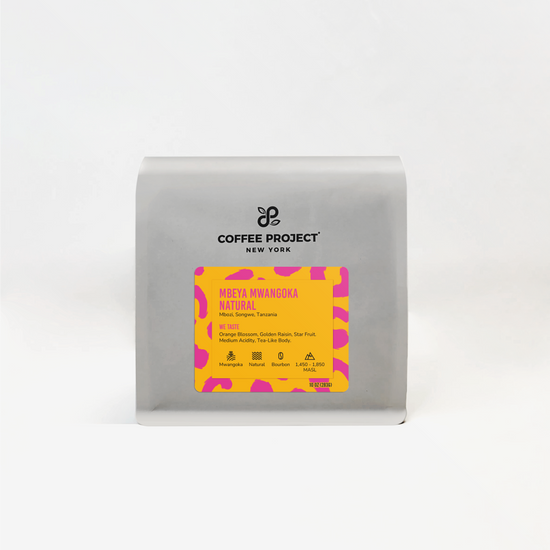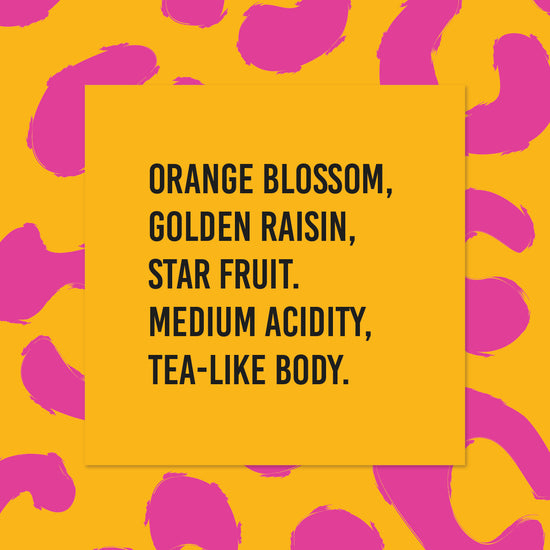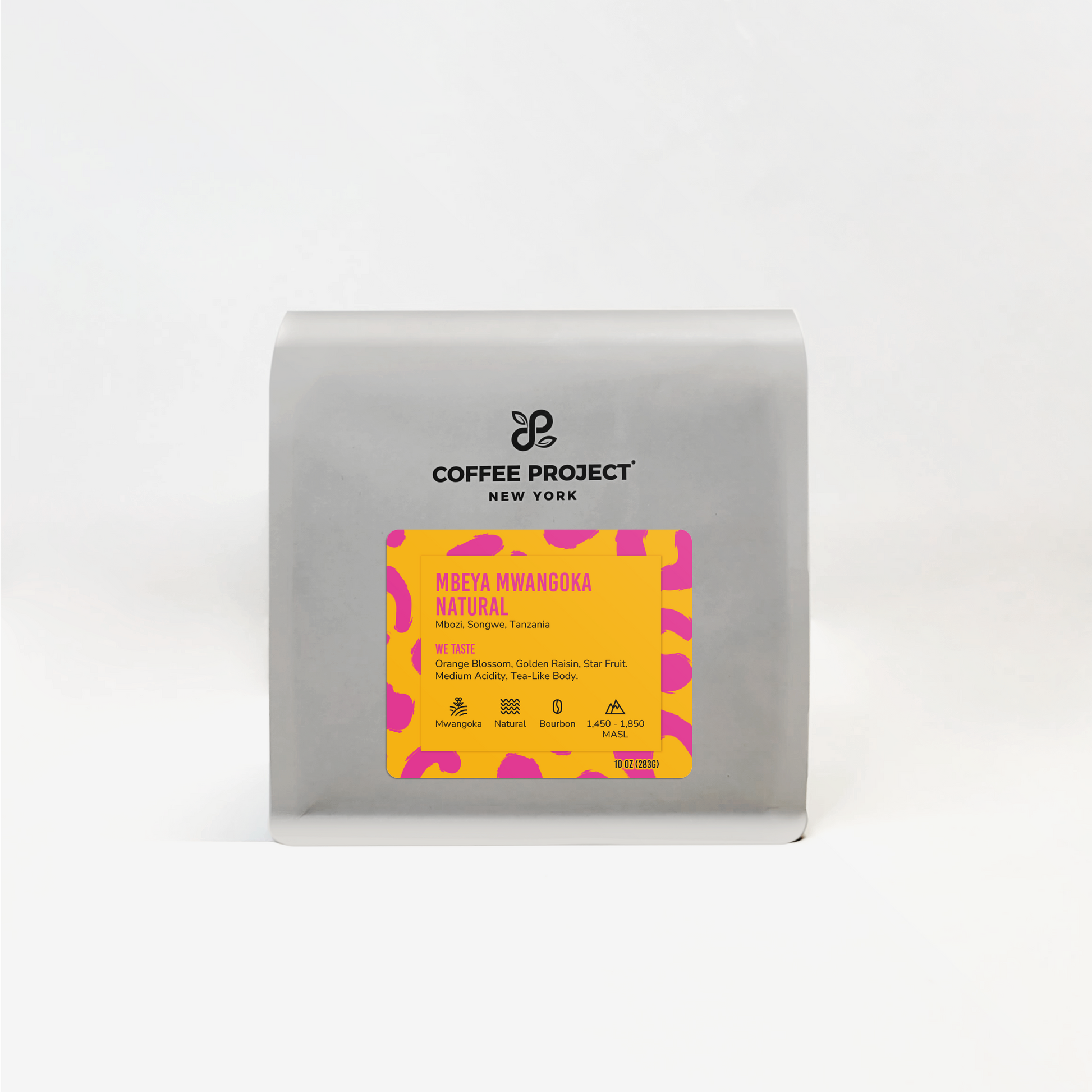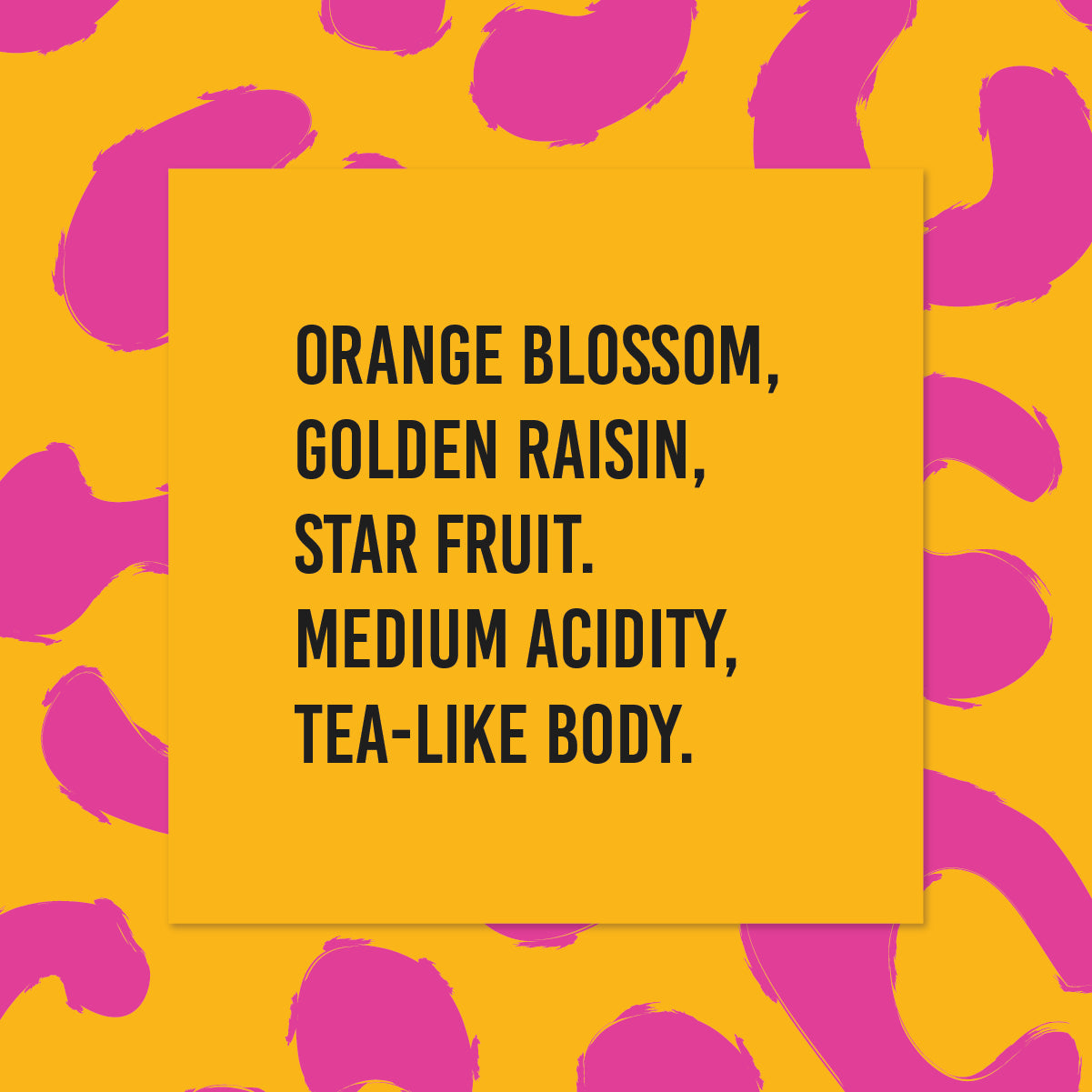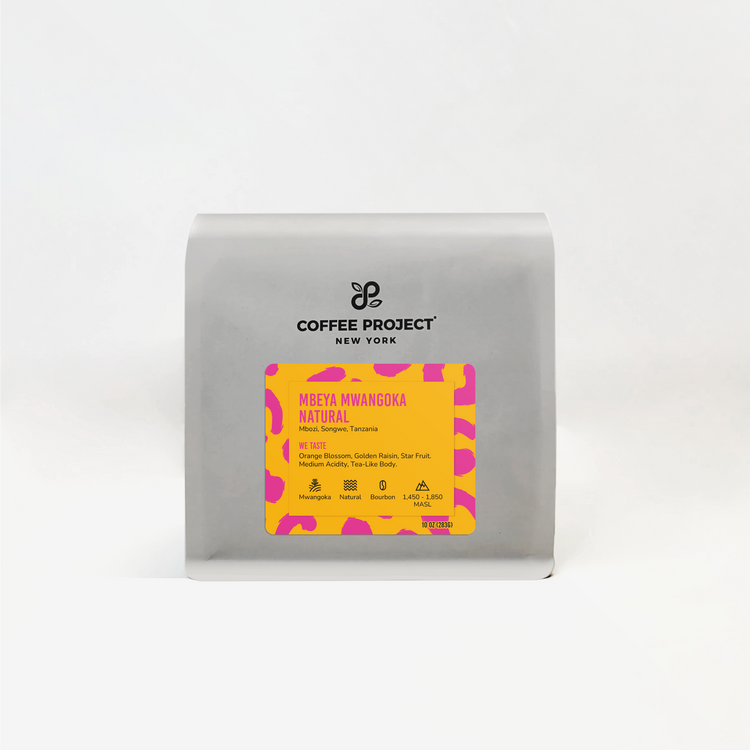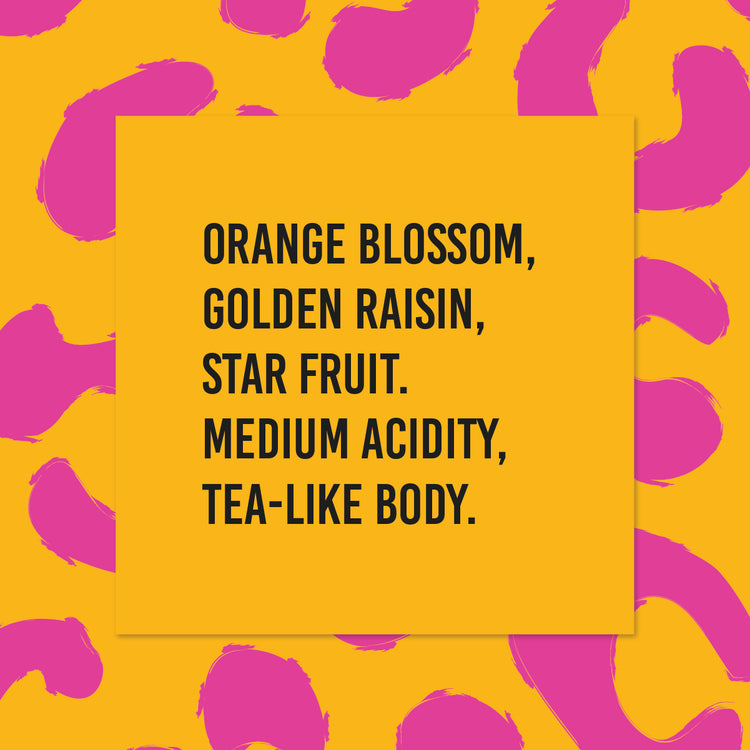Description
More
Less
Region: Mbozi, Songwe, Tanzania
Producer: Mwangoka
Farm: Mwangoka Process:
Natural Variety: Bourbon
Altitude: 1,450 - 1,850 MASL
We Taste: Orange Blossom, Golden Raisin Star Fruit, Medium Acidity, Tea-Like Body
In early 1997, coffee wilt disease appeared in Tanzania to exact massive losses in Robusta harvests. At the time, coffee was one of the largest exports, but in the three decades since, the country still faces export limitations from the widespread prevalence of diseases and pests. Arabica, too, carries extreme cultivation risks, from coffee leaf rust to coffee berry disease, and in some instances, unmanaged issues have caused up to 90% yield loss. Traditionally, the use of comprehensive fungicide spraying kept these diseases in check, causing environmental damage and creating a hefty financial barrier for smallholder farms to grow and sell their cash crops.
But, in 2000, the Tanzania Coffee Research Institute (TaCRI) was founded to revive the blighted coffee industry with demand-driven research. Eventually, they developed an inventive solution: hybridization. Researchers included Catimors for their compact growth habits, Hibrido de Timor and Rume Sudan for their disease resistance, and N39, KP423, and SL28 for cup quality. They successfully isolated these desired gene expressions and developed 19 disease-resistant hybrids, crossed with the dominantly-grown Bourbon and Kent varieties.
Think of it: the research, work, and attention to detail that has gone into this coffee before it was even planted in the ground—the hard work of growing, cultivating, treating, harvesting, sorting, processing, milling, packaging, exporting, roasting, and brewing comes afterward.
This Bourbon, like many of the new varieties cultivated across Tanzania, is one of the 19 hybrids distributed by TaCRI to farmers. Locally, these hybrids are known as "compact" and are desired for many reasons: they minimize initial growth time because of their compact size; they are disease-resistant and reduce the need for fungicide spraying; they are high-yield and can grow up to 2 kg of beans per tree; and they have a raised cup quality!
The Mwangoka Farm has been under the stewardship of Richard Grivas for over 20 years, and Grivas has likely faced problems with rust, berry, and wilt diseases himself at some point during his career. Mangoka is one of few Tanzanian-owned large-format coffee estates.
Description
Region: Mbozi, Songwe, Tanzania
Producer: Mwangoka
Farm: Mwangoka Process:
Natural Variety: Bourbon
Altitude: 1,450 - 1,850 MASL
We Taste: Orange Blossom, Golden Raisin Star Fruit, Medium Acidity, Tea-Like Body
In early 1997, coffee wilt disease appeared in Tanzania to exact massive losses in Robusta harvests. At the time, coffee was one of the largest exports, but in the three decades since, the country still faces export limitations from the widespread prevalence of diseases and pests. Arabica, too, carries extreme cultivation risks, from coffee leaf rust to coffee berry disease, and in some instances, unmanaged issues have caused up to 90% yield loss. Traditionally, the use of comprehensive fungicide spraying kept these diseases in check, causing environmental damage and creating a hefty financial barrier for smallholder farms to grow and sell their cash crops.
But, in 2000, the Tanzania Coffee Research Institute (TaCRI) was founded to revive the blighted coffee industry with demand-driven research. Eventually, they developed an inventive solution: hybridization. Researchers included Catimors for their compact growth habits, Hibrido de Timor and Rume Sudan for their disease resistance, and N39, KP423, and SL28 for cup quality. They successfully isolated these desired gene expressions and developed 19 disease-resistant hybrids, crossed with the dominantly-grown Bourbon and Kent varieties.
Think of it: the research, work, and attention to detail that has gone into this coffee before it was even planted in the ground—the hard work of growing, cultivating, treating, harvesting, sorting, processing, milling, packaging, exporting, roasting, and brewing comes afterward.
This Bourbon, like many of the new varieties cultivated across Tanzania, is one of the 19 hybrids distributed by TaCRI to farmers. Locally, these hybrids are known as "compact" and are desired for many reasons: they minimize initial growth time because of their compact size; they are disease-resistant and reduce the need for fungicide spraying; they are high-yield and can grow up to 2 kg of beans per tree; and they have a raised cup quality!
The Mwangoka Farm has been under the stewardship of Richard Grivas for over 20 years, and Grivas has likely faced problems with rust, berry, and wilt diseases himself at some point during his career. Mangoka is one of few Tanzanian-owned large-format coffee estates.
You May Also Like

